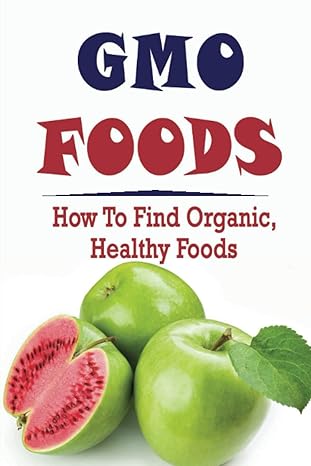Welcome to the article “Eat like your life depends on It” which focuses on avoiding GMO foods. With the rise of genetically modified organisms in our food supply, it is important to understand the potential risks and uncertainties surrounding GMO consumption. While it may be challenging to completely avoid GMOs in your diet, there are practical tips and strategies you can implement to minimize your exposure to these genetically modified ingredients. By choosing organic foods, reading labels carefully, and avoiding common GMO crops, you can take steps towards a healthier and more informed food choices. So, let’s dive in and learn how you can eat with confidence knowing you’re making choices that support your well-being. Have you ever wondered about the impact of the food you eat on your health and well-being? In today’s world, there is a growing concern over genetically modified organisms (GMOs) and their potential risks. Whether you are looking to make healthier choices or simply want to avoid GMO foods, this article will provide you with valuable information on how to navigate the grocery aisles and make more informed decisions about what you eat.

Amazon Fresh Groceries – Buy now
The Basics of GMOs
You may have heard the term GMOs before, but what exactly are they? Genetically Modified Organisms are living organisms whose genetic material has been altered through genetic engineering. This means that scientists can manipulate the DNA of plants, animals, and microorganisms to create specific traits or characteristics. In the case of food crops, GMOs are often designed to be resistant to pests, diseases, or herbicides.
Why You Should Be Concerned
The debate over the safety of GMOs continues to be a contentious issue. While some studies suggest that GMOs are safe for human consumption, others raise questions about potential health risks, environmental impacts, and ethical concerns. As a consumer, it is important to be aware of the potential risks associated with GMO foods and make informed choices about what you eat.
Identifying GMO Foods
With the prevalence of GMOs in our food supply, it can be challenging to avoid them altogether. However, there are steps you can take to identify GMO foods and minimize your exposure to them. Look for the following labels on food products:
- Non-GMO Project Seal: This certification indicates that a product has been verified to be free of genetically modified ingredients. Look for this seal on packaged goods to ensure that you are avoiding GMOs.
- Organic Certification: Organic foods are required to be free of genetically modified seeds, making them a safe choice for those looking to avoid GMOs. Look for products labeled as “100% organic” to ensure GMO-free ingredients.
- “Made without Genetically Modified Ingredients”: Some food manufacturers voluntarily label their products as being free of GMOs. Look for this statement on packaging to make informed choices about what you eat.
By paying attention to these labels and certifications, you can make better choices when shopping for food and reduce your exposure to GMOs.

Common GMO Crops to Avoid
Certain crops are more likely to be genetically modified than others. If you want to minimize your consumption of GMO foods, it’s important to be aware of the most common GMO crops. Some of these include:
- Corn: Corn is one of the most widely genetically modified crops, with a majority of the corn grown in the United States being GMO.
- Soy: Soybeans are another common GMO crop, often used in processed foods and animal feed.
- Canola: Canola oil is derived from genetically modified rapeseed plants.
- Papaya: Certain varieties of papaya from Hawaii have been genetically modified to resist viruses.
- Zucchini and Yellow Summer Squash: These vegetables are often genetically modified to resist pests.
- Sugar Beets: Sugar beets are commonly genetically modified to tolerate herbicides.
- Cotton: Cottonseed oil is derived from genetically modified cotton plants.
By avoiding products made from these common GMO crops, you can reduce your exposure to genetically modified ingredients and make healthier choices for you and your family.

The Health Risks of GMO Foods
While the safety of GMOs continues to be debated, some studies suggest that there may be potential health risks associated with consuming genetically modified ingredients. These risks can include:
- Allergic Reactions: Genetic modifications can introduce new proteins into foods, which may trigger allergic reactions in sensitive individuals.
- Toxicity: Some studies suggest that GMOs may produce toxins that could be harmful to human health.
- Antibiotic Resistance: The use of antibiotic resistance genes in GMOs raises concerns about the spread of antibiotic resistance in the environment.
- Nutritional Deficiencies: Genetic modifications can alter the nutritional content of foods, potentially leading to deficiencies in essential nutrients.
While more research is needed to fully understand the long-term health effects of GMO foods, it is important to be mindful of these potential risks and make informed choices about what you eat.

Why GMO Foods Should Be Banned
The debate over the safety and regulation of GMO foods has led many to call for a ban on genetically modified ingredients. Advocates for a GMO ban cite several reasons for their stance, including:
- Health Concerns: The potential health risks associated with GMOs raise concerns about their long-term impact on human health.
- Environmental Impacts: GMO crops can have unintended consequences on the environment, such as the development of herbicide-resistant weeds and the loss of biodiversity.
- Sustainability: Some argue that GMOs are not a sustainable solution to global food security, as they promote monocultures and reliance on chemical inputs.
- Ethical Considerations: The patenting of GMO seeds and the control exerted by biotech companies over the food supply raise ethical questions about food sovereignty and farmer rights.
By advocating for a ban on GMO foods, activists and consumers are calling for greater transparency, safety, and sustainability in our food system.

How to Make Informed Choices
Navigating the grocery aisles and making informed choices about what you eat can be challenging, especially when it comes to avoiding GMO foods. However, by following these tips and guidelines, you can make healthier decisions for you and your family:
Read Labels Carefully
Take the time to read food labels and look for certifications like the Non-GMO Project Seal or organic certification. Avoid products made from common GMO crops and opt for whole, unprocessed foods whenever possible.
Choose Organic
Organic foods are required to be free of genetically modified seeds, making them a safe choice for those looking to avoid GMOs. Look for products labeled as “100% organic” to ensure GMO-free ingredients.
Support Non-GMO Brands
Many food companies seek certification to have their products certified as non-GMO. Look for products that bear the Non-GMO Project Seal or are labeled as “Made without Genetically Modified Ingredients.”
Educate Yourself
Stay informed about the latest research and information on GMO foods. By educating yourself about the potential risks and benefits of GMOs, you can make more informed choices about what you eat.
Shop Local
Support local farmers and growers who prioritize sustainability and transparency in their practices. Buying locally grown and organic produce can help you reduce your exposure to GMOs and support your community.
 Get it here
Get it here
Get Involved
Advocate for transparent labeling and regulations for GMO foods. Write to your elected officials, support organizations that work on food policy issues, and get involved in the movement for a healthier and more sustainable food system.
By taking these steps and making conscious choices about the food you eat, you can reduce your exposure to GMOs and make healthier choices for you and your family. Remember, every bite you take is an opportunity to nourish your body and support a more sustainable food system.
In conclusion, the debate over GMO foods is a complex and contentious issue that raises important questions about our food system and its impact on our health and well-being. By educating yourself, reading labels, and making informed choices, you can navigate the grocery aisles with confidence and make healthier decisions for you and your family. Remember, your health is in your hands, so eat like your life depends on it.

